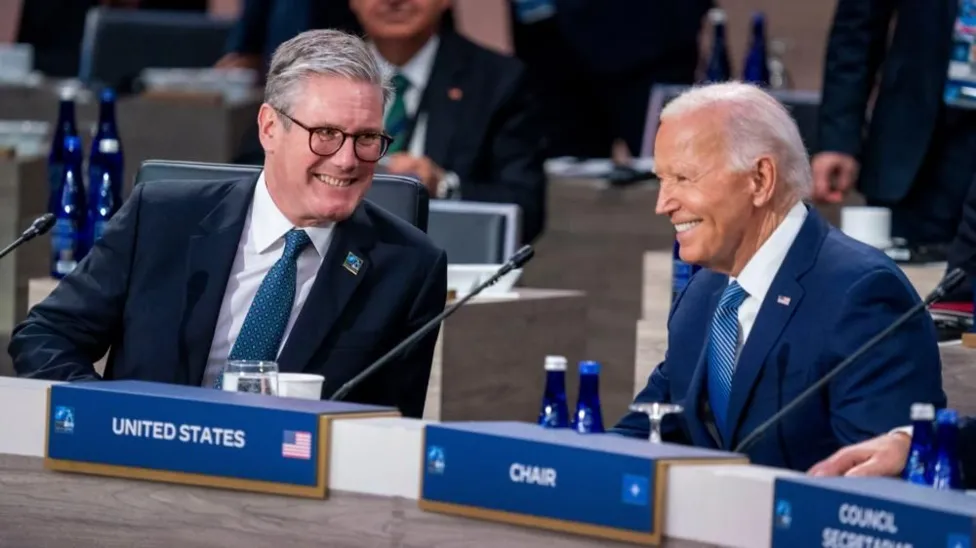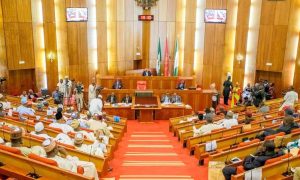From the exit poll, to the White House balcony – it has been quite a week for Sir Keir Starmer.
The prime minister is clearly revelling in his new role, with his nine years in opposition over.
He headed to Washington for the Nato defence alliance summit, his government not yet complete, news of ministerial appointments pinging into my inbox as we zipped over the Atlantic.
From hustling for votes one week to high diplomacy the next is quite the fortnight – and perhaps one an incoming government wouldn’t choose in an ideal world.
But while governing provides the capacity to shape much, that doesn’t extend to shaping the scheduling of international summits.
The Nato summit in the American capital has been in the diary for months.
Whoever had been prime minister would have been turning up, election or not.
So, no matter that jobs still had to be allocated and Sir Keir himself had only just been sworn back into parliament, the airport beckoned.
And so began an attempt to turn the scheduling logjam to their advantage.
“It was great to have the ability to see so many leaders here in the first full week in office,” one senior prime ministerial aide told me.
“It shortcut a process that could otherwise have taken months to get round everyone.
“It meant we could make the most of the momentum coming out of the election and while there was maximum interest in Keir to raise all the strategic issues we wanted to and reset from our predecessors.”
The prime minister sought to place his “unshakeable” commitment to Nato within the Labour tradition.
“I represent the party that was instrumental in creating Nato 75 years ago.
“It was a Labour prime minister, Clement Attlee, and a Labour foreign secretary, Ernie Bevin, that fought so hard to make this a reality.
“This is our history – we are proud of it,” he told us in his closing news conference.
He added that the alternative to Ukraine’s victory was “unthinkable.”
But the issue that is dominating the national conversation in the US – President Biden’s future – was catapulted to prominence again when the 81-year-old confused the leaders of Ukraine and Russia, of all places, just moments before the prime minister’s own news conference.
With President Zelensky standing just yards away, President Biden managed to introduce him as President Putin.
At the end of a Nato summit dominated by the war in Ukraine, and a few weeks dominated by questions about President Biden’s mental capacities and political future, it was about as bad a gaffe as you could possibly imagine.
There were audible gasps in the press room as the words were uttered. Reporters from all over the world were dumbstruck at what they had just heard.
Moments later, Sir Keir Starmer went from witnessing that cripplingly embarrassing moment to facing repeated questions on it.
Earlier, when the prime minister had done a series of interviews with the travelling British press pack, me included, he had been asked about his impressions of the president, having spent about an hour with him, for the very first time, the day before.
He was, in essence, a character witness to this raging debate, in the United States and around the world, about Joe Biden’s ability to carry on and run for re-election this autumn.
Sir Keir told me President Biden had been “on really good form” and “across all the detail.”
Except this latest evidence suggested he really wasn’t.
Sir Keir stuck to this formulation repeatedly – that the President Biden he had seen had achieved much at the conference to be proud of.
What else could he really say?
But the truth is Nato’s attempt to project a united, steadfast alliance its members can believe in has been shaken by yet another wobbly moment from the leader of its most powerful member.
BBC –Chris Mason, Political editor



























